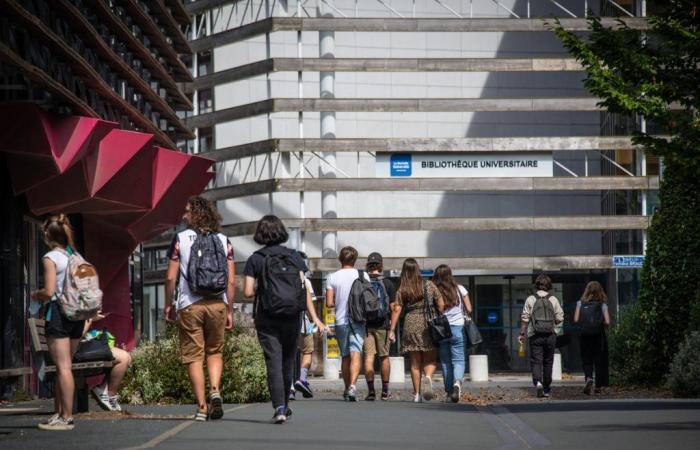Lhe subject of sexist and sexual violence in students is no longer a news story. Here and there, “affairs” appear in the news section, while an association has launched an Observatory and an annual barometer to analyze, document and quantify the hidden side of student life. Objective “VSS”, an acronym entered in the academic dictionary. Finally, a National Plan to combat gender-based and sexual violence (SGBV) in higher education and research was initiated in 2017 to stem the scourge.
But this Wednesday, October 2, a new step was taken with the publication of a large-scale scientific study, crowning survey work carried out in 2023-2024 among 67,000 representative students. The study, entitled Sexual violence in higher education in France: a focus on alcohol and cannabis, to be credited to the Interministerial Mission to Combat Drugs and Addictive Behavior of the Ministry of Higher Education and of the CNRS, is placed under the leadership of Laurent Bègue-Shankland, professor of social psychology at the University of Grenoble-Alpes. Deciphering the dark side of higher education
9% of men, 24% of women, 33% of non-binary people are victims
According to this survey, 9% of men, 24% of women and 33% of transgender, non-binary or queer people say they have suffered at least one sexist or sexual violence (sexual assault, rape or attempts). Women are the main victims (71.4%).
Acts of aggression, half of which occurred in festive contexts, notably student evenings. An observation which had already been drawn up by the Observatory of gender-based and sexual violence which, during its latest barometer, published on September 16, 2024, establishes that student rites, in particular integration evenings and hazing, are risky circumstances. . “59% of rapes committed are committed during a festive event,” explains Gaëlle Berton, president of the Observatory. Nearly one in three students have been the victim or witness of gender-based or sexual violence during an integration event, a figure which rises to 60% for women and non-binary people. Even more chilling: one in six victims was attacked in the first week of their first year of study… As a result, “many victims stop their studies, or change universities to no longer come across their attackers”, explains Marie Jodar, co-president of MEUF, the Bordeaux Universal Feminist Student Movement.
“59% of rapes committed are during a festive event”
Note also that the “risky times” are essentially between 11 p.m. and 3 a.m., from Thursday to Saturday, between September and November but also in August. Finally, in 70% of cases, the attackers are other students. A neighbor of an amphitheater…
Alcohol: more than half of cases
In more than half of the cases, alcoholic impregnation is associated with the violence committed or suffered. To go into detail, the perpetrator is drunk in 62% of attempted sexual assaults; 56% of assaults, 42% of attempted rapes and 43% of rapes. But the victims declare that they are also under the influence of alcohol in the majority of cases; while 23% of victims of rape or attempts and 16% of sexual assaults specify that the attacker attempted to modify their state of consciousness using alcohol or drugs to submit them and make them vulnerable.
Too few complaints
It is always up to the victim to prove the facts. The legal procedure puts a real brake on filing a complaint”
If “the floor is freed”, the filing of complaints or referral to establishments remains minor and varies depending on the types of aggression, details the study. Only 2.5% of cases of sexual assault and 7.9% of rapes are the subject of a complaint. No surprise for Marie Jodar: “It is always up to the victim to prove the facts. The legal procedure puts a real brake on filing a complaint. Sexist and sexual violence is anchored in society at all levels, the university is only a reflection of this. Remember that consent is not yet enshrined in law. As long as we do not have, on a large scale, the means to fight against this systemic violence inherited from our patriarchal system, universities will not be able to do more,” concludes the co-president of MEUF.
“The results of this study are a serious warning that obliges us all,” concludes Dr. Nicolas Prisse, president of Mildeca. Beyond prevention actions against addictions, we “must go even further. »






